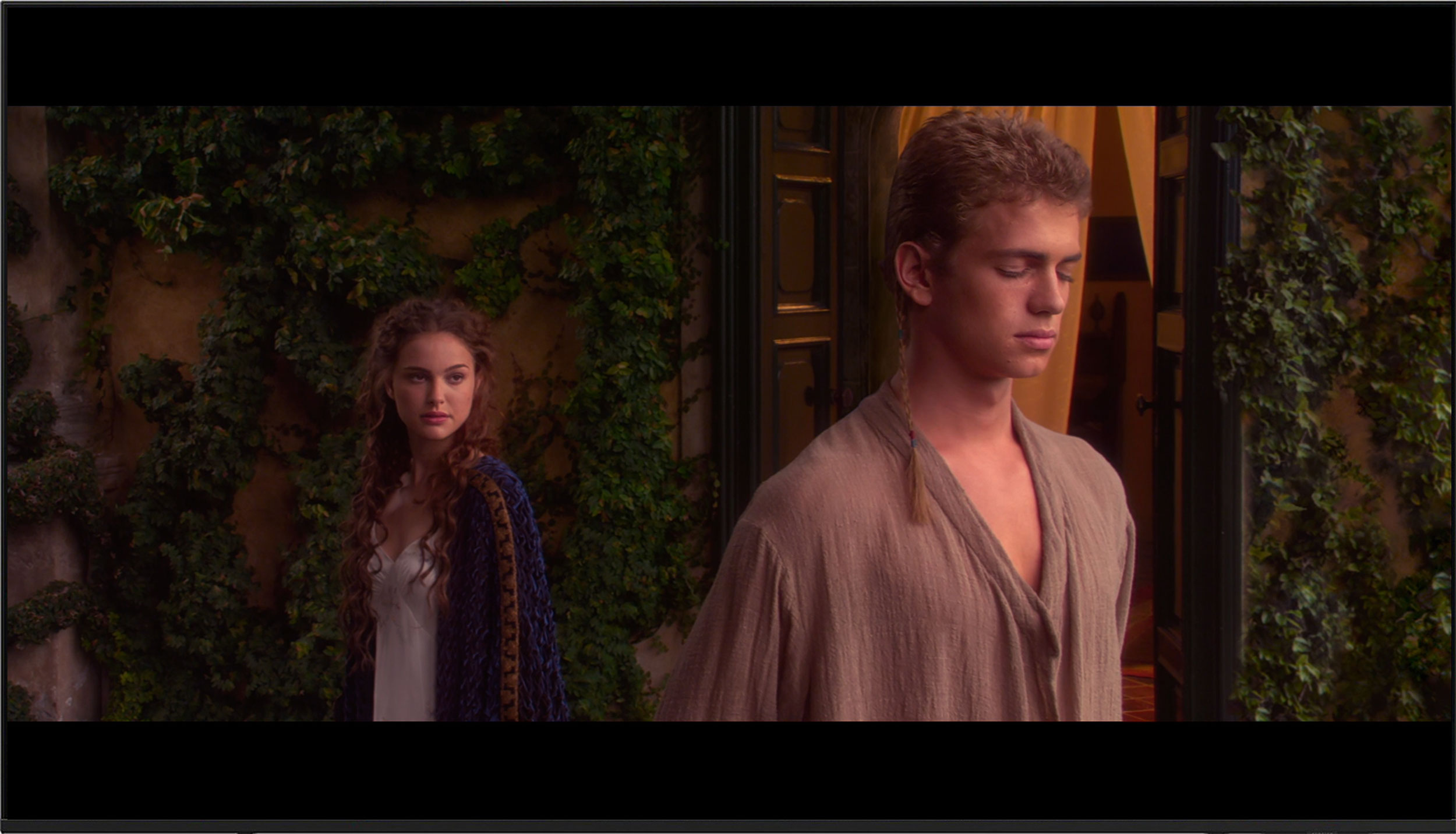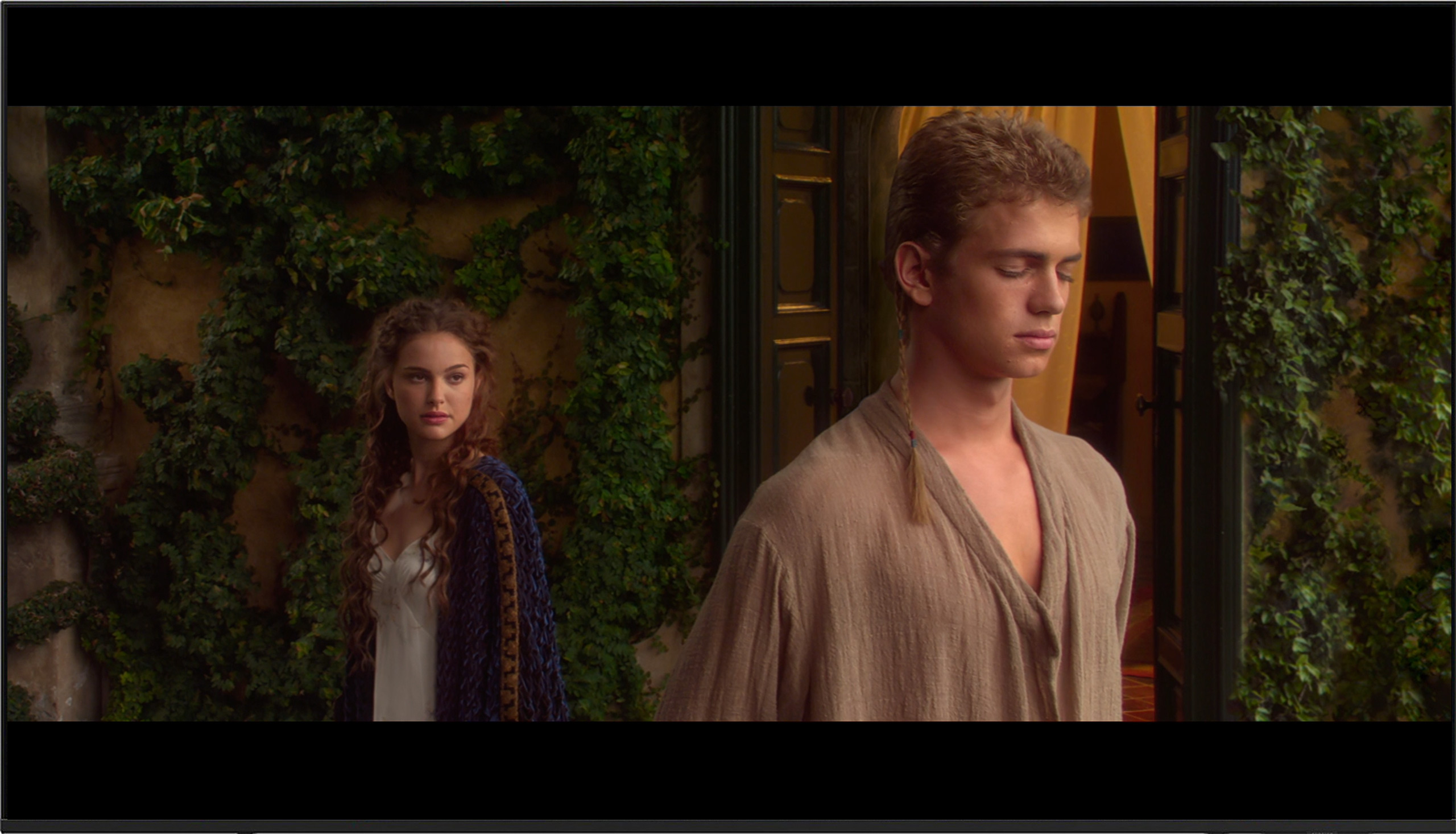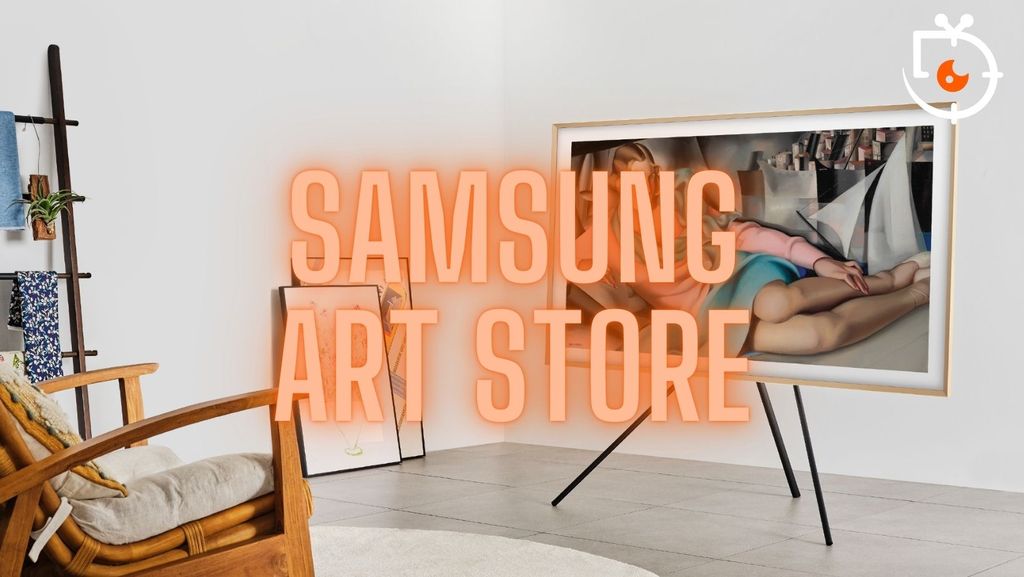- Matching (Score) |
- Our verdict |
- Competing TVs |
- TV appearance |
- Where to buy |
- Contrast and black detail |
- HDR effect quality |
- Factory color reproduction |
- Color reproduction after calibration |
- Smoothness of tonal transitions |
- Image scaling and smoothness of tonal transitions |
- Blur and motion smoothness |
- Console compatibility and gaming features |
- Input lag |
- Compatibility with PC |
- Viewing angles |
- Daytime performance |
- TV features |
- Apps |
- Playing files from USB |
- Sound |
- Panel details
Samsung U8000F (VA) Review
U8000F / U8092F
Available screen sizes:
Diagonal with a different matrix:
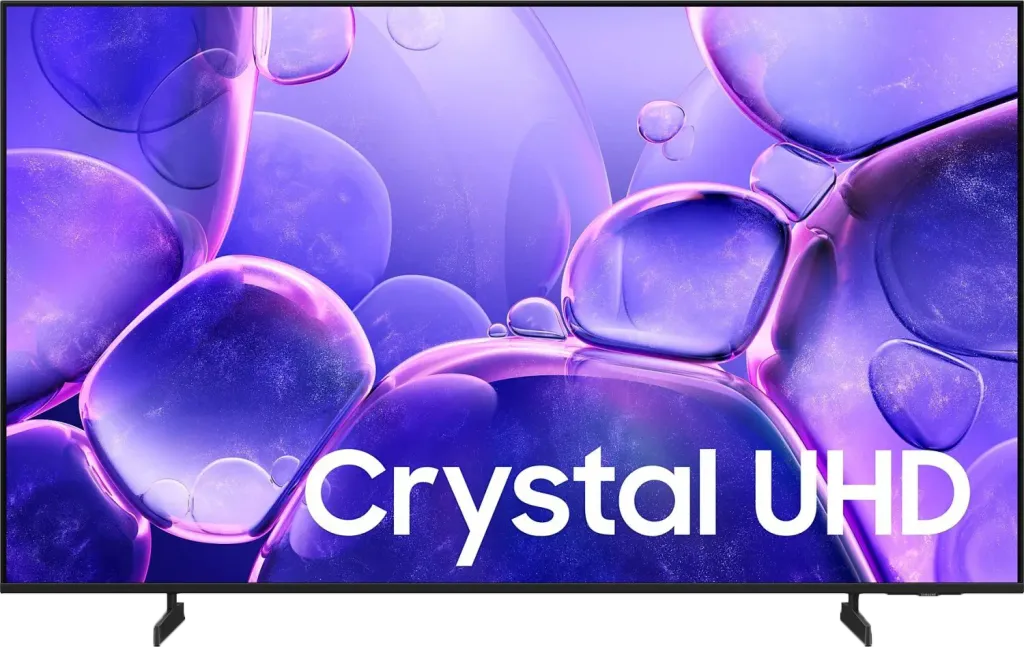
Complete the survey to find out the result
Panel type: LCD IPS Refresh rate: 60Hz Brand: SAMSUNG Resolution: 3840x2160 System: Tizen Model year: 2025
We have another edition of the Samsung U8000F television test for you. Although the manufacturer uses a single name for the entire series, individual variants can differ drastically from one another. In this material, we take a look at the version equipped with a VA panel. How does it perform compared to its "brother" with an IPS panel? Does better black compensate for certain compromises? We check this in practice.
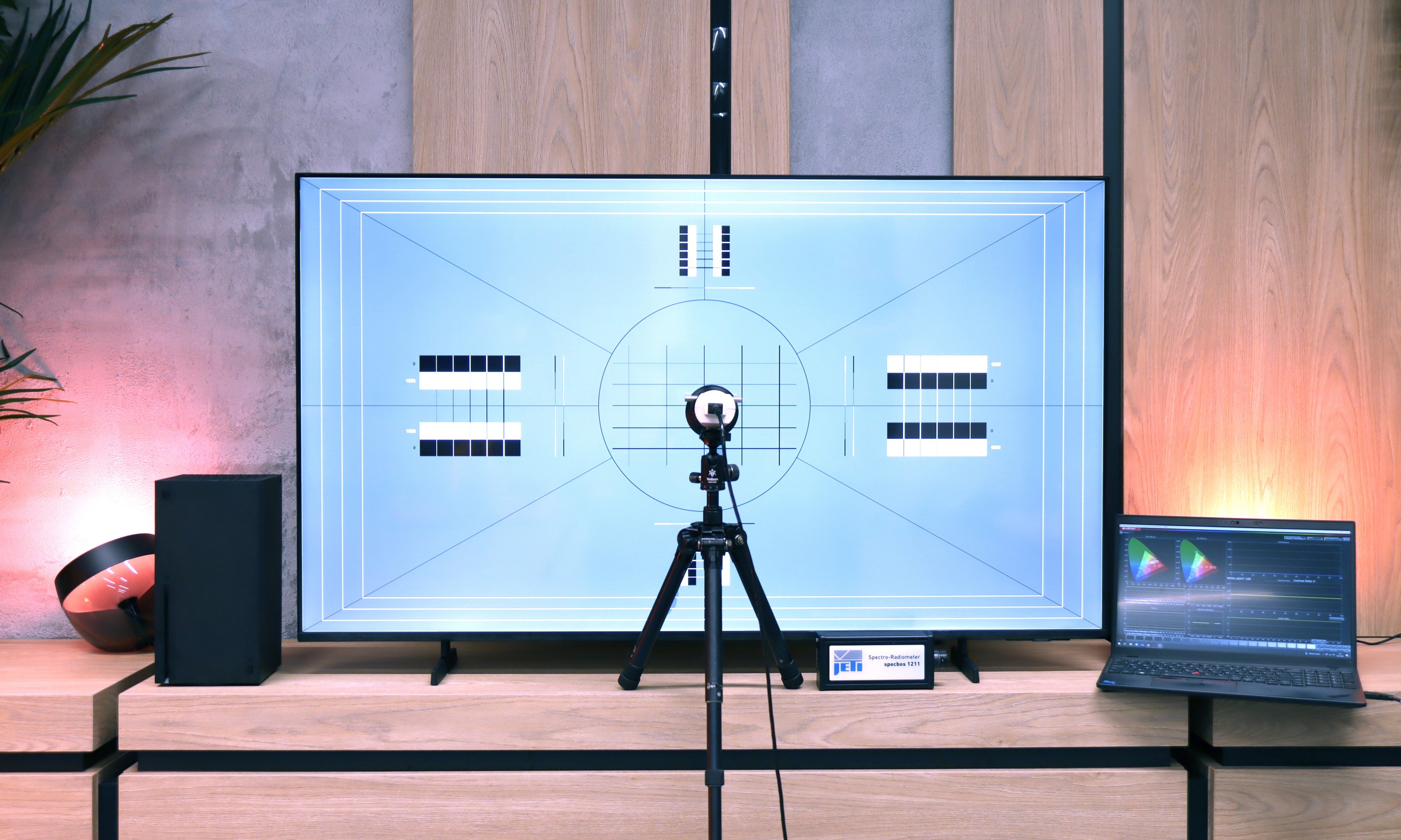
SAMSUNG U8000F - Our verdict
5.6
Overall rating
Samsung U8000F with a VA panel is a television that can pleasantly surprise in its class – of course, if we know what to expect from it. The biggest advantage of this variant is certainly the quality of black levels. Compared to the version with an IPS panel, the difference is enormous – the image gains depth, contrast looks significantly better, and evening film sessions no longer feel like watching content through a grey filter. For a budget segment device, this is truly a nice surprise. The reliable Tizen system is also a plus, as it not only runs smoothly but also offers access to a full range of applications, support for SmartThings, and a voice assistant (via the app). The PC mode and console connection function flawlessly – fonts are clear and readable. Additionally, it includes basic features for gamers, such as VRR and ALLM, which – although they won’t transform this television into an e-sports machine – are completely sufficient for occasional gaming.
Of course, like any construction in this budget, the U8000F with a VA panel has its limitations. Viewing angles are not its strongest point – when watching from the side, it’s easy to notice a drop in quality. Nonetheless, it's hard to see this as a serious flaw – because something has to give. Better black levels always come at the cost of slightly less flexibility in positioning. When it comes to HDR, we have rather a symbolic approach – brightness is too low to speak of a true "wow" effect, and the colour palette is limited. But let’s face the truth – that’s not the reason one buys such a television. So if you are planning to purchase the U8000F, we definitely recommend opting for the variant with a VA panel. It’s still a very basic model, but in this version, it offers more than one might expect – especially in terms of black quality. And in this price bracket, that’s quite a lot.
Advantages
Decent black and contrast (VA panel version)
Advanced Smart system: Tizen
Great for working with text - excellent font display
Basic functions for gamers - VRR and ALLM
Low input lag
Disadvantages
Low brightness
Worse viewing angles than the IPS matrix version (Obvious obviousness 😉)
Infrared remote control
Worse appearance than its predecessor
Movies and series in UHD quality
5.7
Classic TV, YouTube
5.9
Sports broadcasts (TV and apps)
4.9
Gaming on console
6.6
TV as a computer monitor
6.0
Watching in bright light
3.8
Utility functions
5.3
Apps
8.7
Sound quality
5.7
Complete the survey to find out what fits your preferences
SAMSUNG U8000F - Competing TVs in this price range
SAMSUNG U8000F - TV appearance
HDMI inputs: 3 x HDMI 2.0, 0 x HDMI 2.1 Outputs: eARC (HDMI), ARC (HDMI) Network Interfaces: Wi-Fi 2.4GHz, Wi-Fi 5GHz, Ethernet (LAN) 100Mbps
Build quality: Average
Stand type: Legs
Bezel color: Black
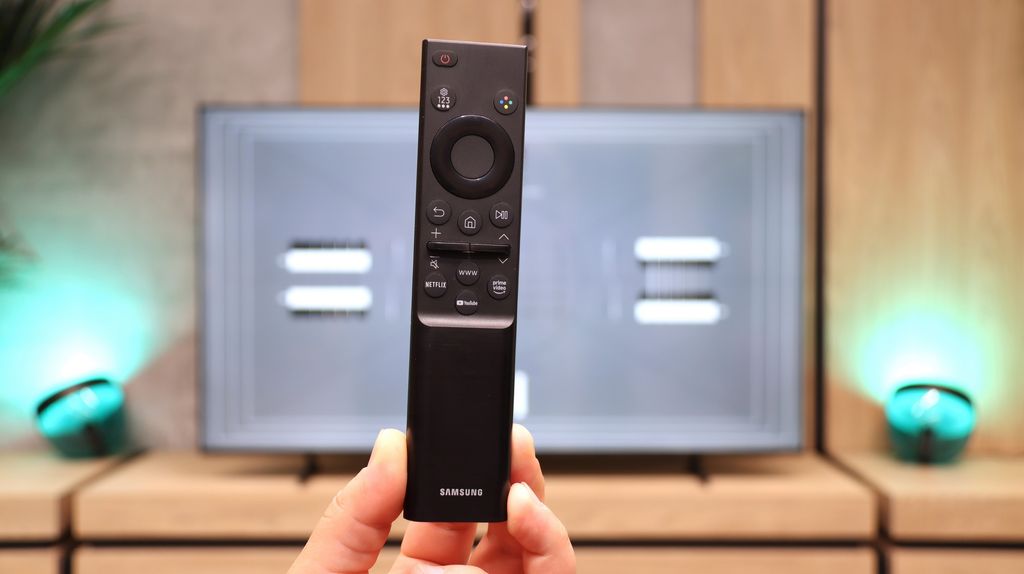
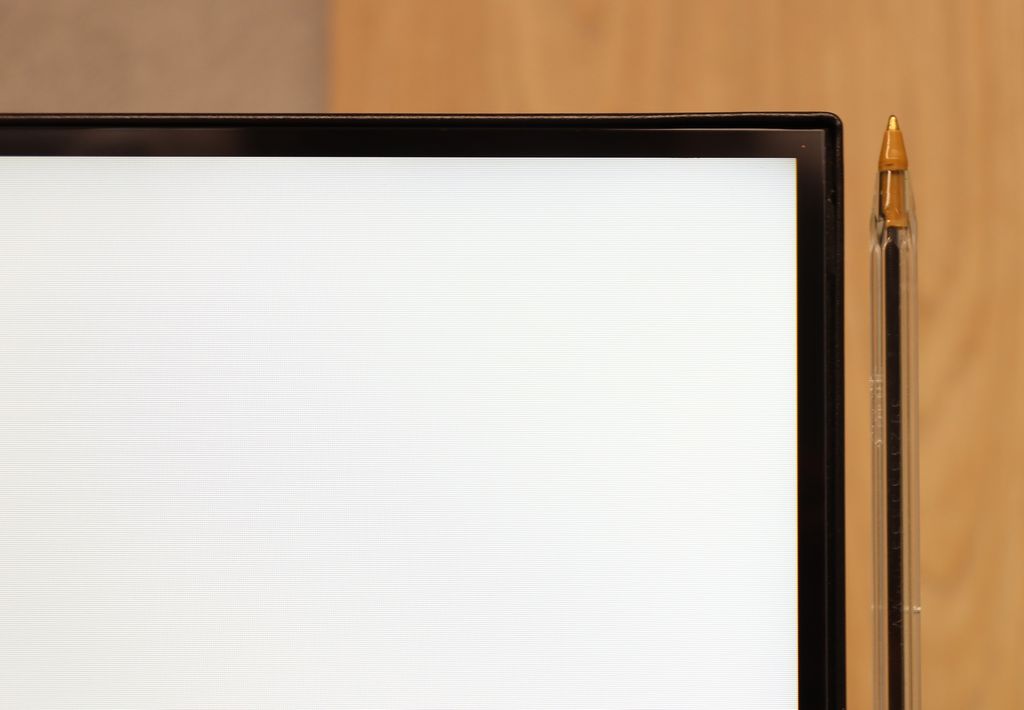
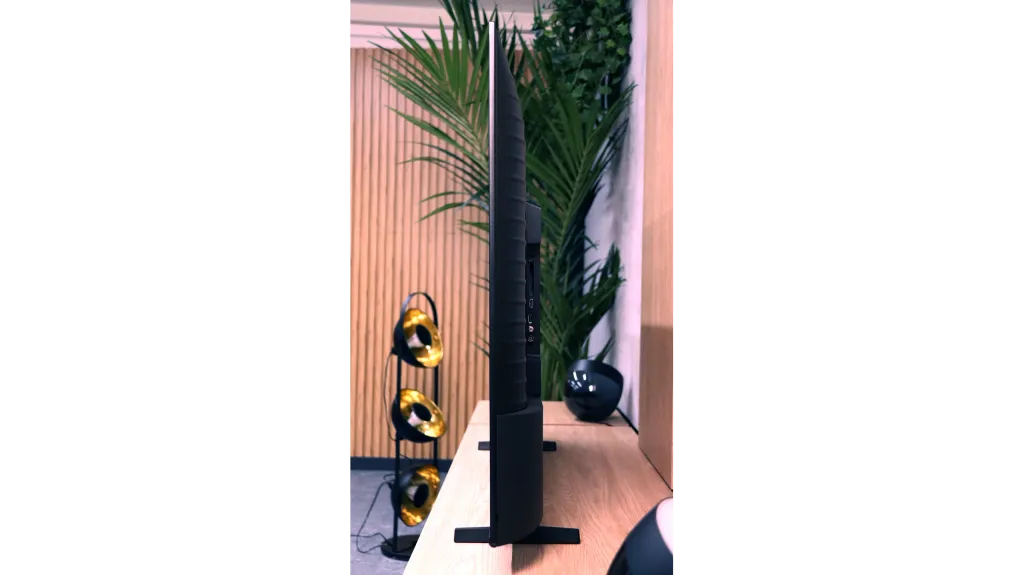
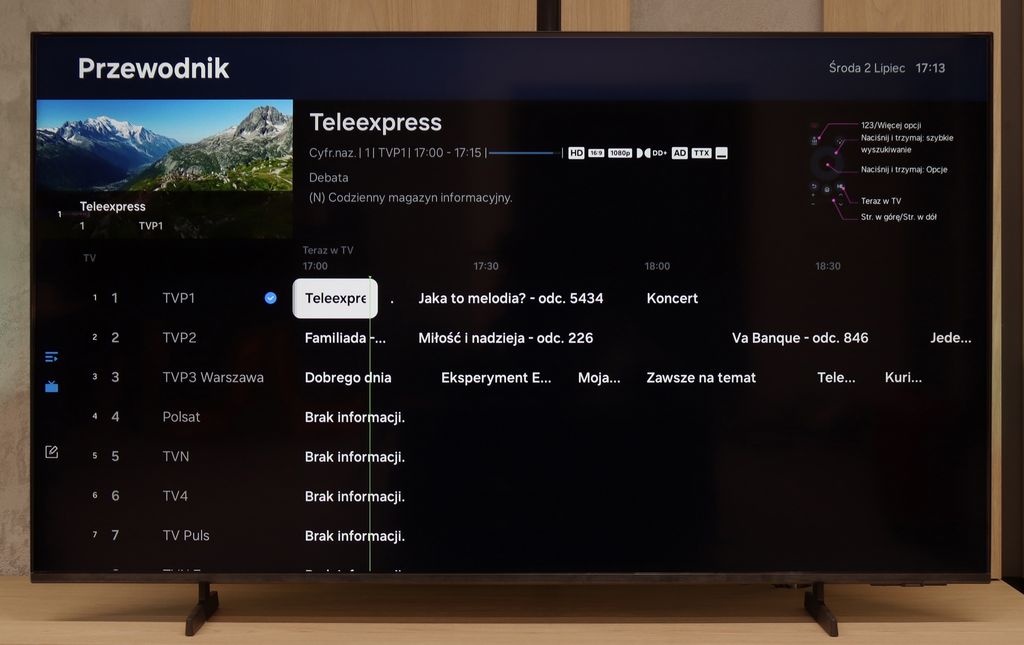
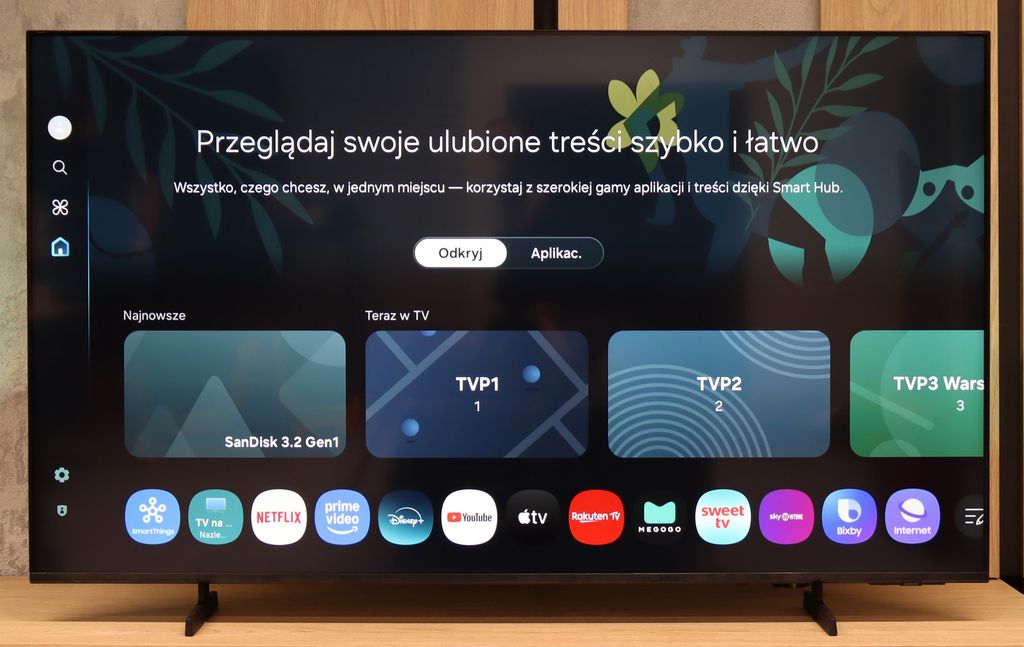
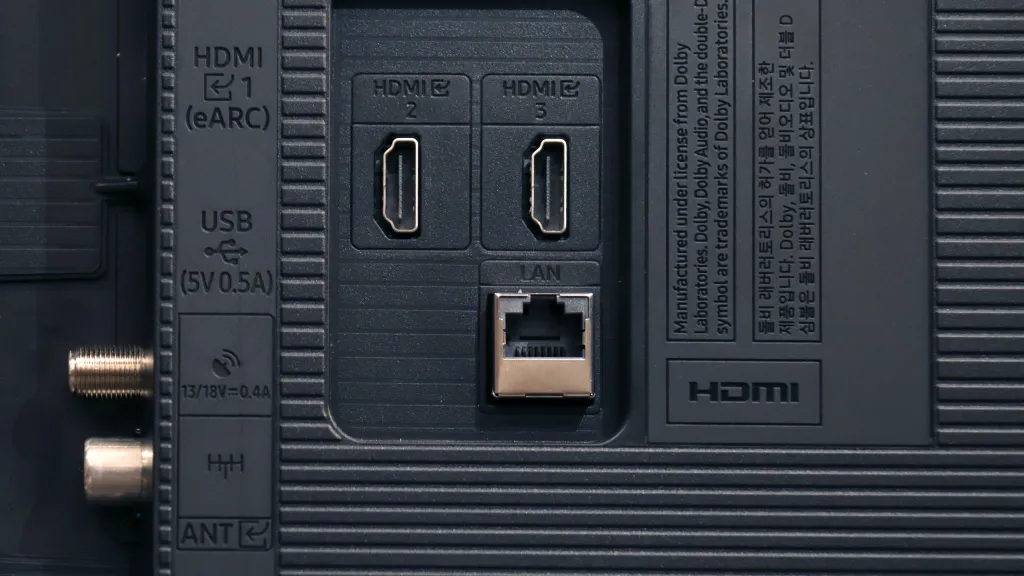
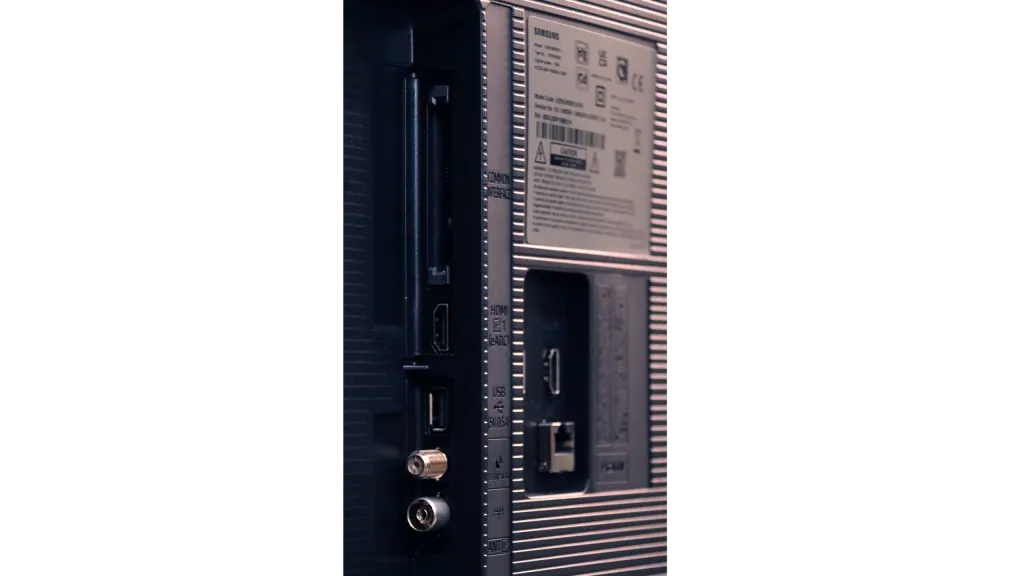
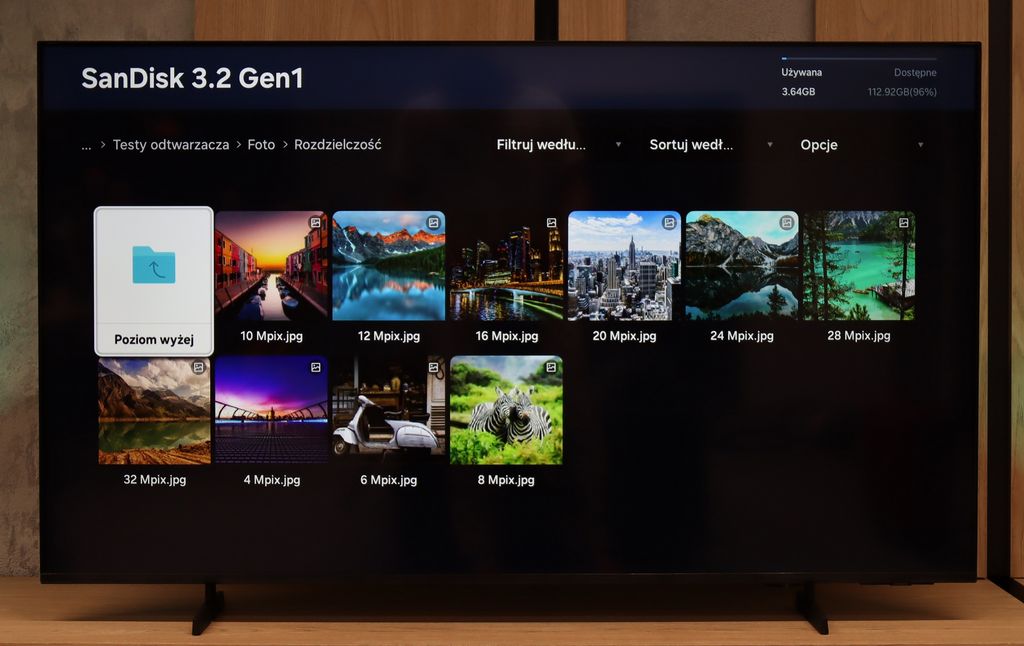
Stand: Fixed
Flat design: No
Accessories: Stand
If anyone expected that the U8000F would be a direct stylistic successor to the DU8000 model, they may feel disappointed. The new version from 2025 has clearly gained "mass" and gives the impression of stepping back a few paces in terms of design. From a modern and fairly slim construction, it has turned into a television with a more clumsy appearance. On the plus side, the front – from this side, the television still looks decent. The thin, metal frames a few millimetres thick make it look better from the front than many models from the lowest price range. Nevertheless, the entire casing reveals that we are dealing with a very basic construction. It's a pity, because over the past few years, the 8000 series has been considered one of the more aesthetic in its segment. The 2025 version is unlikely to convince those who are looking for an elegant television for the living room.
Buy at the best price
Select size:
SAMSUNG U8000F - Contrast and black detail
5.3/10
Local dimming function: No
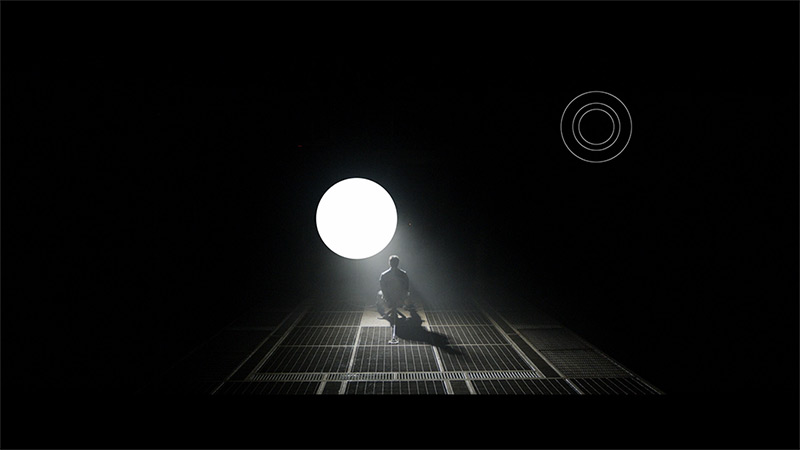
Result
4,600:1
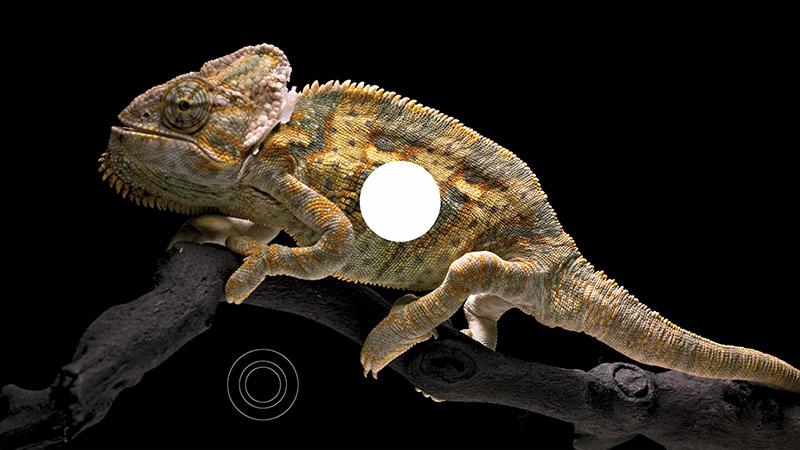
Result
4,150:1
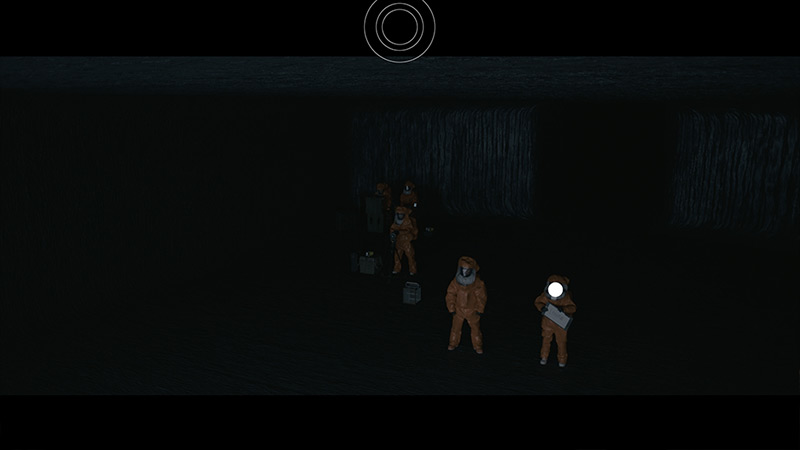
Result
3,900:1

Result
3,750:1
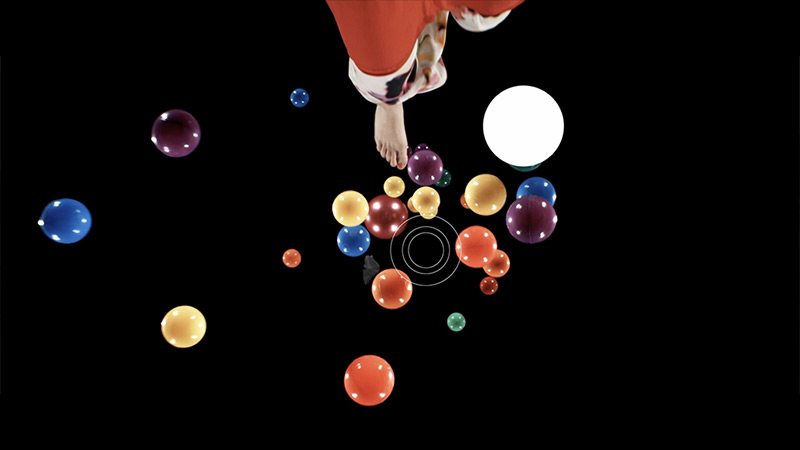
Result
3,400:1
Visibility of details in the lights:
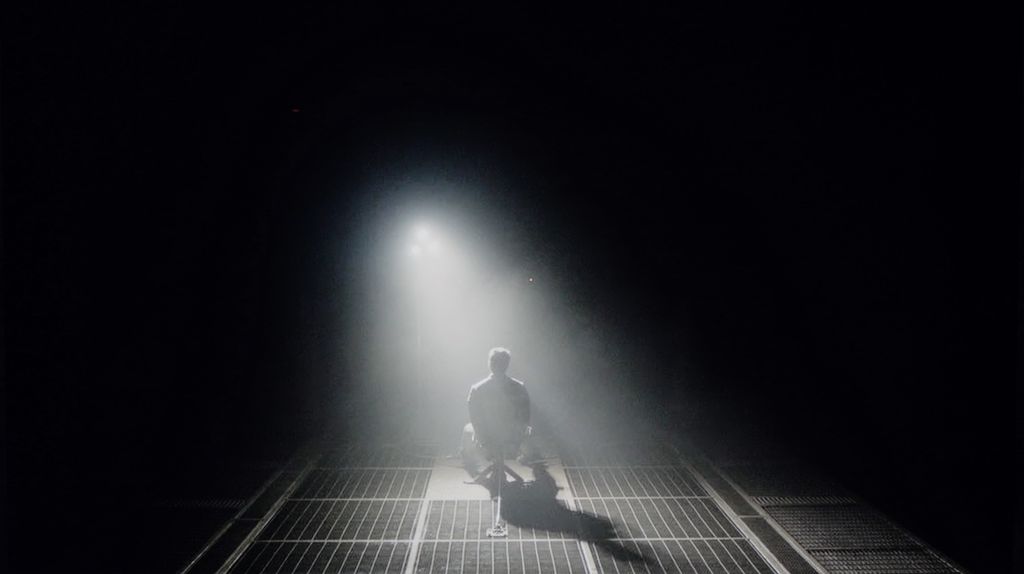
It is worth noting that the test concerns variants with a VA panel, which perform considerably better in terms of black levels and contrast than the 55-inch version equipped with an IPS panel. Thanks to the higher native contrast (although it is not a top result among VA panels), the tested scenes looked significantly better – without noticeable greyness or the typical washed-out shadows associated with IPS panels. The black levels in the U8092F model can be considered really good and satisfying, especially in this price range. Of course, we are not dealing with a construction equipped with local dimming, so it is difficult to expect spectacular results in very challenging scenes. On the other hand, we are talking about an exceptionally budget television that performs quite solidly within its category.
Halo effect and black detail visibility:
SAMSUNG U8000F - HDR effect quality
3.1/10
Supported formats: HDR10, HDR10+, HLG Color gamut coverage: DCI P3: 79.1%, Bt.2020: 58.5%
Luminance measurements in HDR:

Result
212 nit
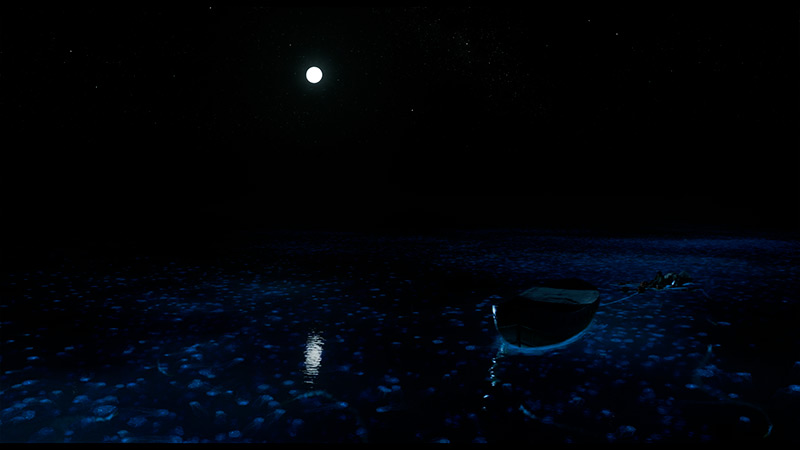
Result
173 nit
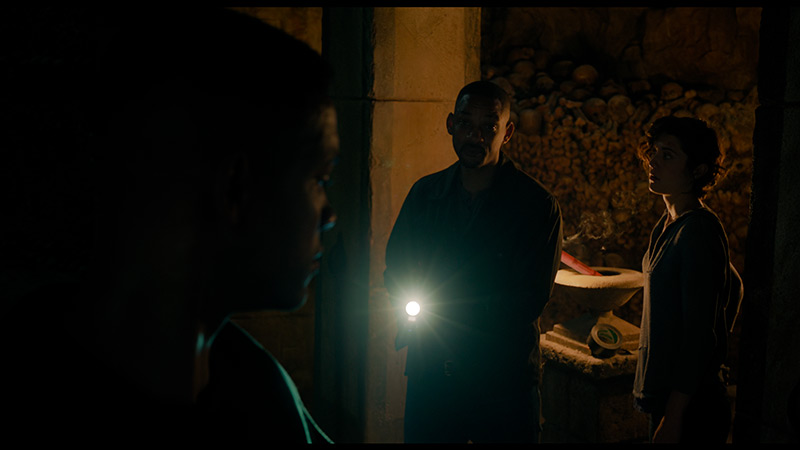
Result
265 nit
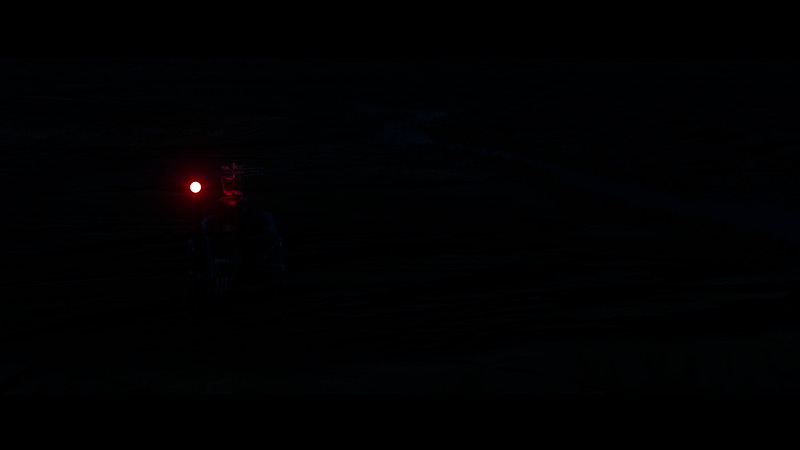
Result
90 nit

Result
250 nit
While the U8000F with a VA panel can still be praised for decent blacks, there is no longer any reason to be enthusiastic about brightness – especially in HDR scenes. The television achieves a maximum of just under 250 nits, which is simply too low to speak of any impressive light effects. Bright elements appear pale, and scenes that should sparkle look rather flat. We observed an interesting situation during the test of a scene from the film Sicario 2 – the screen became noticeably darker, as if the television was trying to hide its limitations in displaying blacks. One might get the impression that the device artificially darkens the image to enhance contrast, but in practice, the effect makes very little difference, other than the fact that we see less on the screen. Furthermore, there is the issue of colours – the U8000F does not support a wide colour gamut, so one cannot count on the vibrant, saturated hues known from better models. The HDR image here resembles slightly brightened SDR and... perhaps that is even a good thing. With this model, it is not worth expecting a cinematic experience – it is better to treat HDR as a modest addition.
Scene from the movie “Pan” (about 2800 nits)

Scene from the movie “Billy Lynn” (about 1100 nits)

We checked how the U8092F performs not only in synthetic tests but, above all, during a real viewing session – because let's face it, test patterns are one thing, but it's films that are watched most often. And we must admit: the television positively surprised us. Based on the laboratory results, we didn't expect wonders, yet daily usage turned out to be quite pleasant.
Colours are not among the most saturated, and at times there are slight inaccuracies – this is a fact. However, despite this, watching films was surprisingly enjoyable. The television tried to reproduce the bright elements of the scenes – sometimes with better success, sometimes with worse. There were instances where the sun and clouds blended into one bright blot, but at other moments, details were clearly visible. The setting of the HDR tone mapping function had a significant impact here – it's definitely worth keeping it on. The image gains in naturalness and recovers some details that could disappear in highlights with the default setting. This was particularly noticeable in scenes from the film The Meg, where the bright areas had significantly more visible content.
HDR luminance chart:
The image quality in HDR10 and HDR10+ modes in the tested model U8092F leaves a lot to be desired. Although the television supports dynamic metadata, the differences between the two versions are minimal – in HDR10+ one can indeed notice a bit more detail (although this is not visible in our test picture), but the overall reception still turns out weak. This is disappointing, especially since HDR10+ as a format has great potential – by adapting parameters to each scene, it can significantly improve contrast and visibility of details, particularly on screens with limited brightness. Its growing popularity – presence on platforms such as Prime Video, Netflix, and soon also Disney+ – is definitely good news for viewers. It's just a shame that in the case of U8092F, the implementation of this format does not allow fully exploiting its capabilities.
Static HDR10

Dynamic: HDR10+

Factory color reproduction
6.5/10
The Samsung U8000F has been tested by us in the best picture mode it offers out of the box – the Filmmaker Mode. This profile is theoretically meant to provide a neutral, cinematic image devoid of unnecessary enhancements and artificial beautifications. In the case of SDR content – primarily in HD or SD resolution – the television performed surprisingly decently right out of the box. The only noticeable flaw was brightness management. The gamma chart showed some deviations – slight brightening or dimming of certain tones – but in practice, this did not significantly affect the viewing experience. Considering the television's segment, it performs quite well.
However, the situation is much weaker in HDR mode. While the white balance was still acceptable, the colour inaccuracies were very apparent. In the Color Checker test, almost every sample was outside the target point, and the image itself appeared unnatural – the colours were shifted, sometimes too cool, other times simply dull and lifeless. The main problem lies in the hardware limitations – the U8000F does not support the wide colour gamut of DCI-P3, so it is physically incapable of reproducing the colours that the HDR standard anticipates. Unfortunately, this is evident in almost every more demanding scene.
Color reproduction after calibration
7.5/10
Right out of the box, the U8000F offered quite a decent image in SDR for its price class. However, we managed to enhance it slightly – we reduced a subtle purple tint and improved the gamma characteristics, giving it a more natural curve. Despite these adjustments, the television still tends to overly brighten the brightest details – the gamma chart shows a clear inflection that cannot be completely corrected.
In HDR mode, however, it is noticeably weaker. It is hard to speak of any significant improvement here – despite attempts to adjust the settings, the image still presents considerable colour inaccuracies. A Delta E exceeding 7 signifies noticeable deviations that could not be effectively reduced. Unfortunately, this is a limitation of the construction itself – the U8000F simply was not designed for serious HDR. In everyday viewing in SDR, it performs quite well, but when it comes to HDR content... it's best not to have overly high expectations.


SAMSUNG U8000F - Smoothness of tonal transitions
9.5/10
One of the significant elements affecting the perception of the image is the way in which the television handles tonal transitions – that is, the blending of colours and shades without clear boundaries. In the case of the Samsung U8092F model, it performed really well. On the test screens, we did not observe visible banding or disturbances in the colour gradients. The image retains a natural character, without excessive digital interference, which unfortunately is often the norm in this class of equipment. Minimal imperfections appeared in very bright areas, but they are practically unnoticeable and do not affect everyday use of the television.



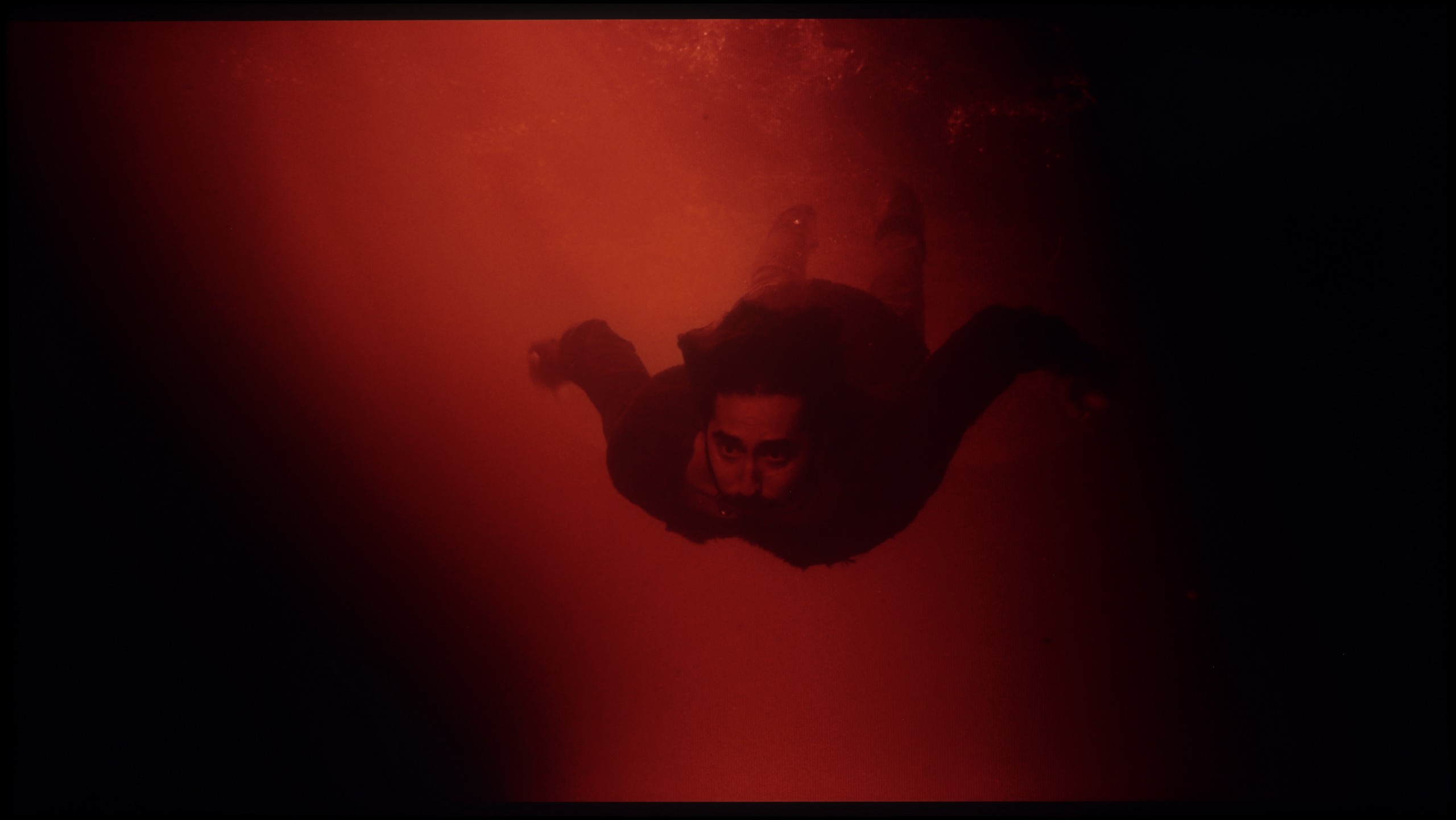




Image scaling and smoothness of tonal transitions
5/10
Smooth transition function
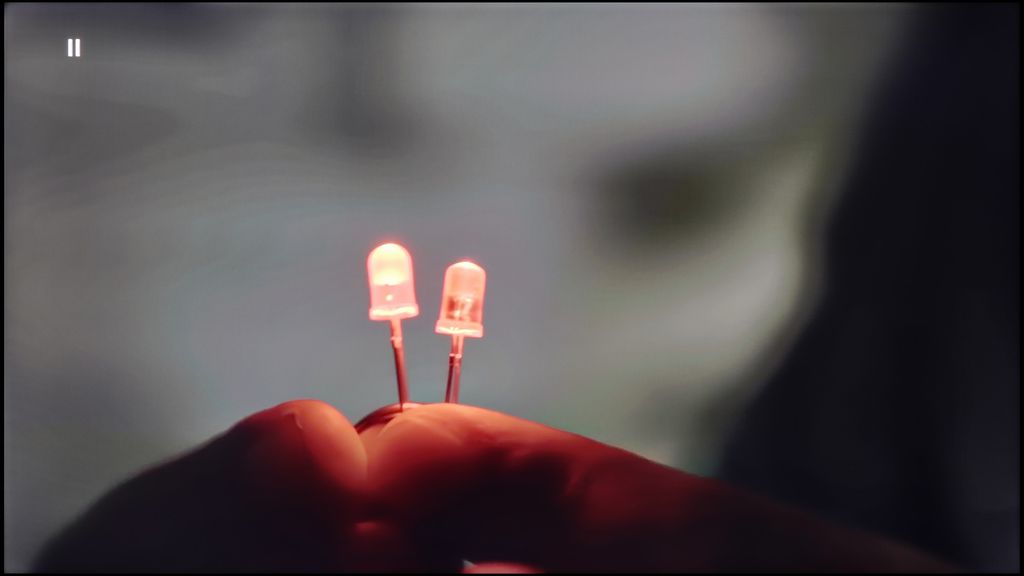
Image without overscan on the SD signal

When it comes to how the Samsung U8000F handles lower quality materials, we must admit that Samsung has made progress compared to its predecessor from last year – the DU7192 model, which theoretically occupies the same position in the lineup. This year's model has been equipped with a feature to improve the fluidity of tone transitions, which has been implemented much better than last year. Indeed, the television still utilizes quite strong algorithms that can distort details or remove film grain, but nonetheless – it can confidently be said that it works effectively. However, not everything has gone perfectly. The U8000F has noticeable issues with slightly cutting the image when watching very old content in very low resolution. If someone plans to play their old VHS tape, they must reckon with the fact that the image may appear slightly "cut off".
SAMSUNG U8000F - Blur and motion smoothness
4/10
Maximum refresh rate of the panel: 60Hz
Film motion smoothing option: Yes
Blur reduction option: No
BFI function 60Hz: Yes, 60Hz (image flickers)
Brightness drop with BFI: 47%
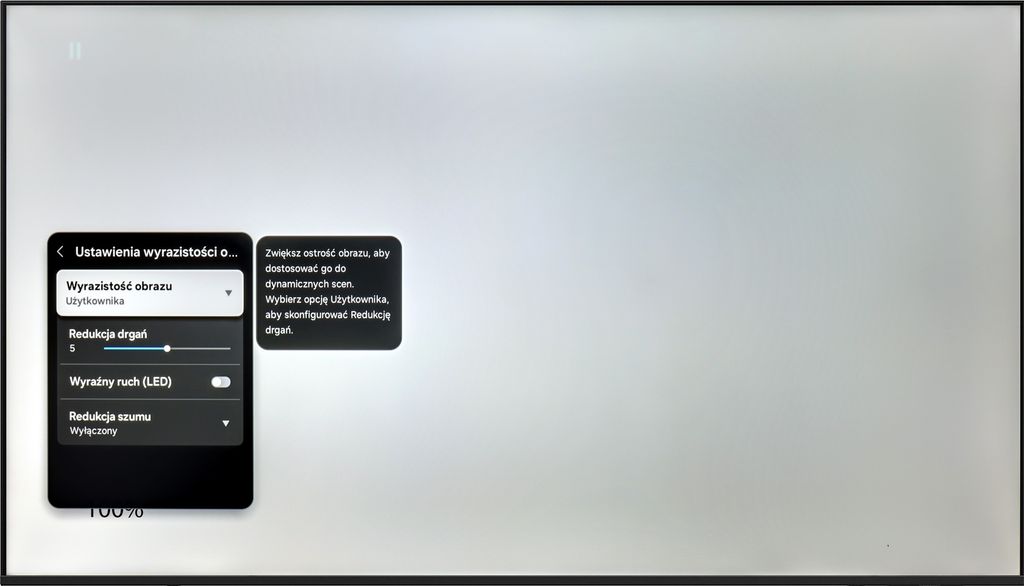
The Samsung U8000F is equipped with a 60 Hz panel, so it's clear right from the start that one shouldn't expect miracles. This is simply the standard in this class – adequate for everyday viewing, but without any fireworks. The television offers a single motion smoothing slider – a feature called "Motion Blur Reduction," which allows us to adjust the smoothness of the image in films. Higher settings produce a more "theatrical" and smoothed effect, while lower settings help retain the film's original character with a slight 24p effect. An interesting feature is "Clear Motion LED," which is the BFI mode – inserting black frames between image frames to improve motion clarity. In practice, however, the screen flickers heavily when this feature is activated and should rather be considered an experiment than something that genuinely enhances gaming comfort.
Blur (native resolution, maximum refresh rate):


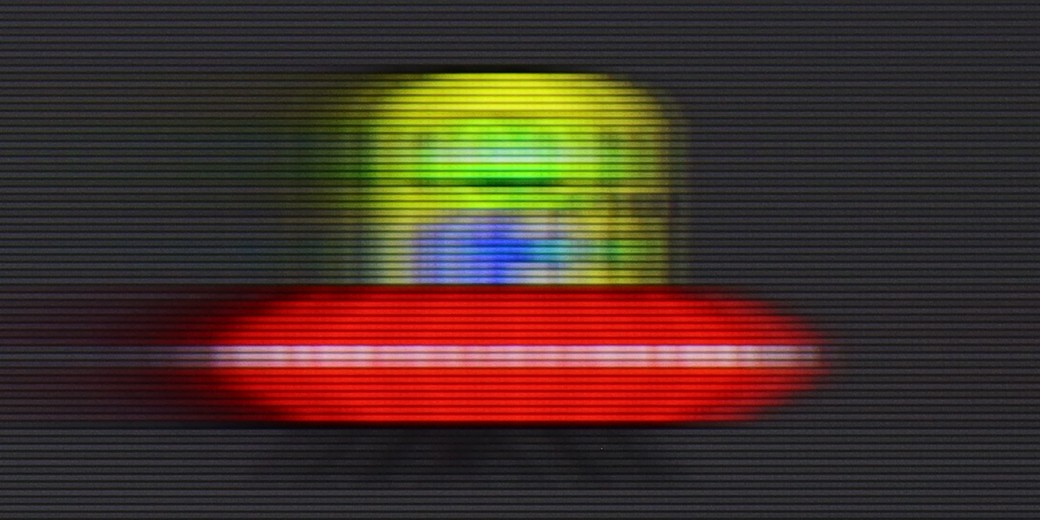
Blur (BFI function enabled):
Image flickers in this mode



Blur (Upłynniacz ruchu 4K@60Hz):
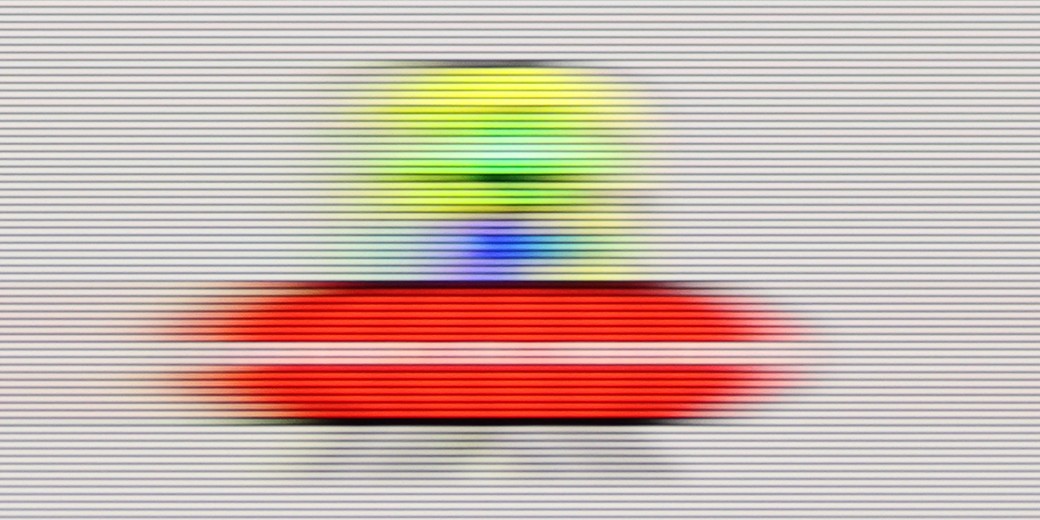
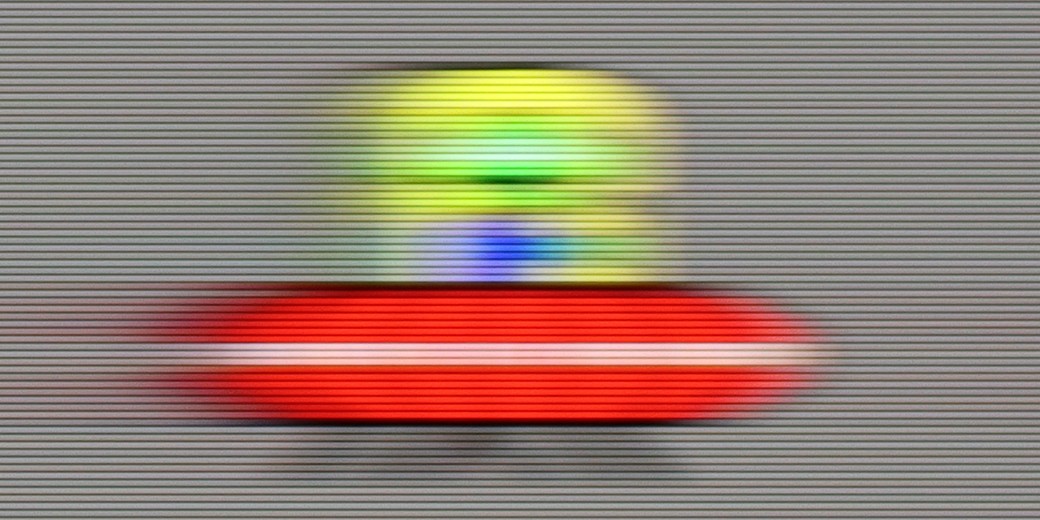
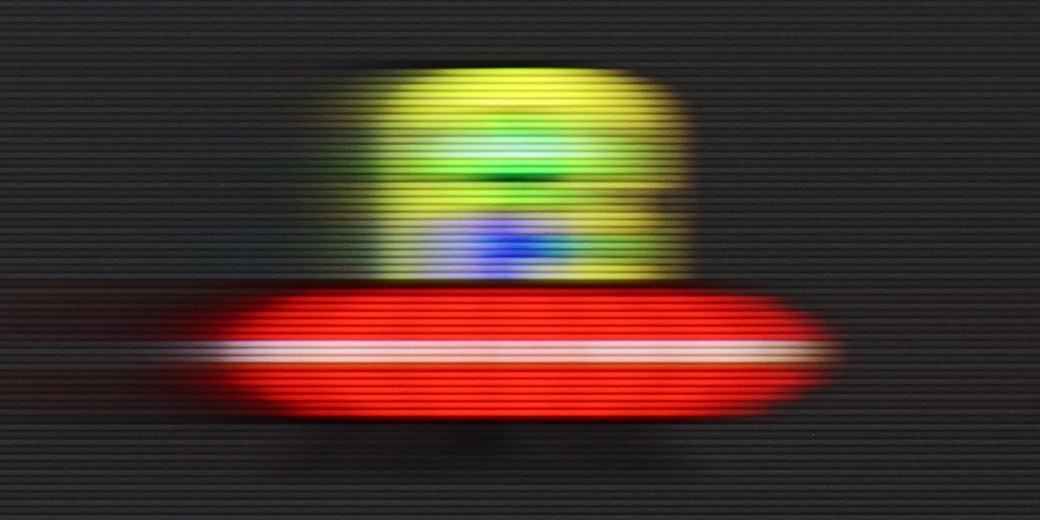
The motion blur can be described as weak. VA panels at 60 Hz typically exhibit noticeable blurring in dynamic scenes – and this is indeed the case with the U8092F. It's average, though not disastrous. For more discerning viewers, this may be noticeable, especially when watching sports or fast-paced shots.
SAMSUNG U8000F - Console compatibility and gaming features
5.3/10
ALLM: Yes
VRR: Yes
VRR range: 48 - 60Hz
Dolby Vision Game Mode: No
Correct implementation of HGIG: Yes
1080p@120Hz: No
1440p@120Hz: No
4K@120Hz: No
Game bar: No
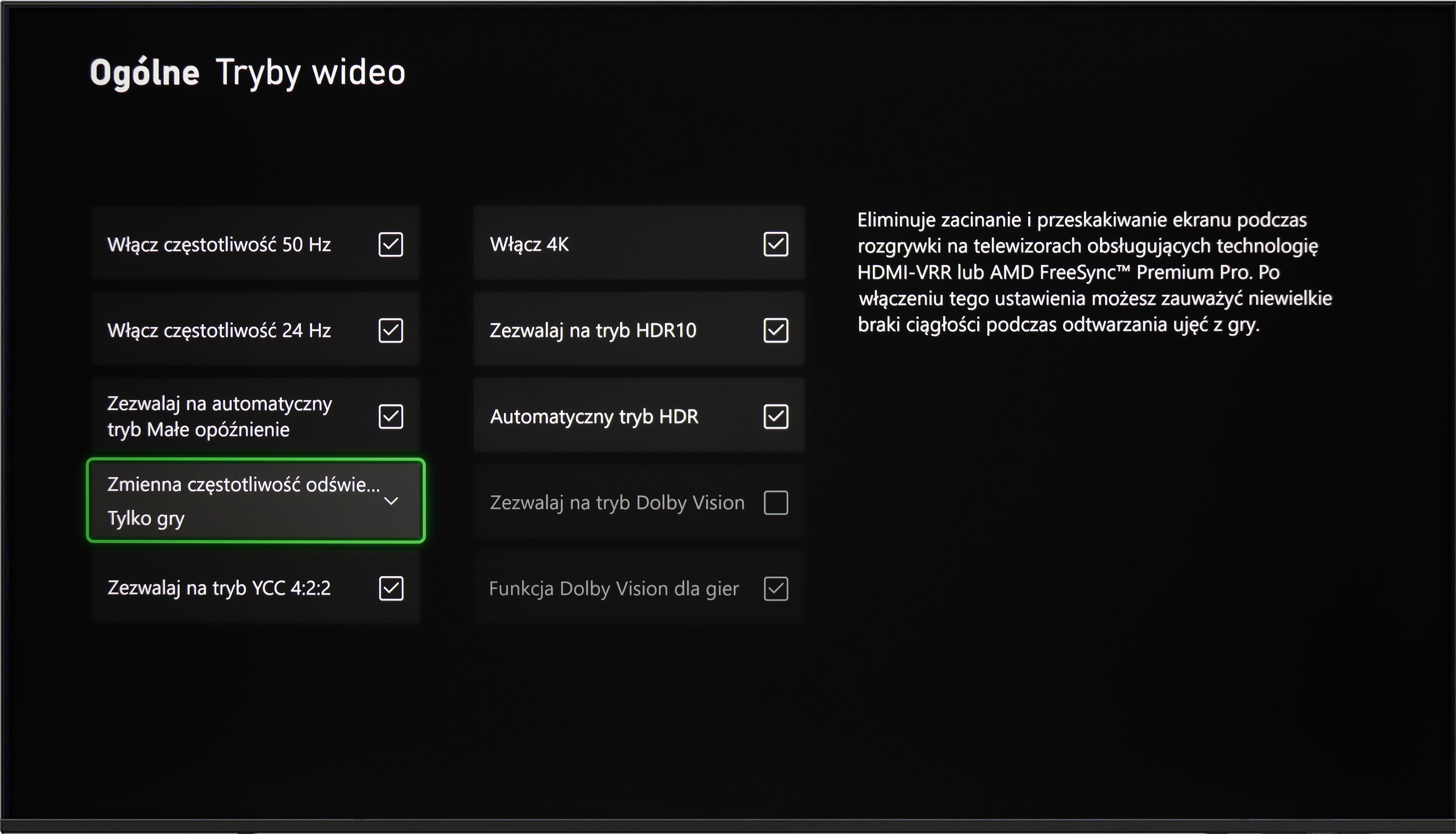
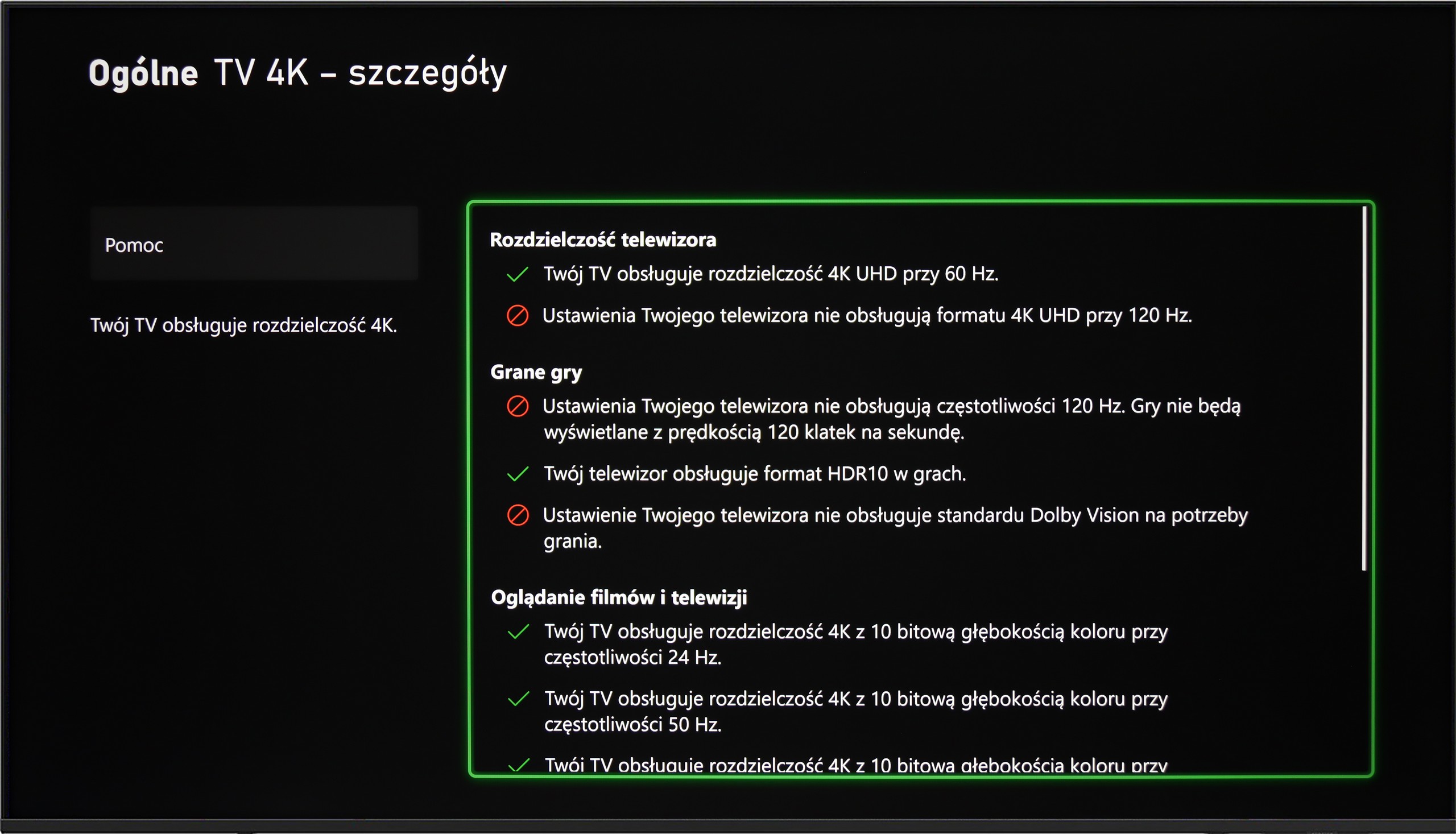
[UPDATE] We have updated our 2025 Samsung TV reviews following the release of firmware version 1131, which officially restores the essential HGiG (HDR Gaming Interest Group) support.
Samsung U8000F offers a basic set of features for gamers, which may still be sufficient for less demanding users. It includes an automatic game mode – when a game is launched on the console, the television automatically switches to low latency mode, significantly improving response times. There is also a VRR feature, or variable refresh rate, which operates in the range of 48 to 60 Hz. This means that both Xbox and PS5 will not produce the "tearing" effect – as long as we stay within this range.
Unfortunately, that’s about it for the advantages. Additions like Game Bar or higher refresh rates are reserved for higher-end Samsung models from the 2025 line. In theory, the television also supports the HGiG feature, which should adjust HDR imagery to the creators' intentions. Unfortunately – despite the fact that this feature appears in brochures and promotional materials – its configuration on the Xbox console turned out to be... impossible in practice.
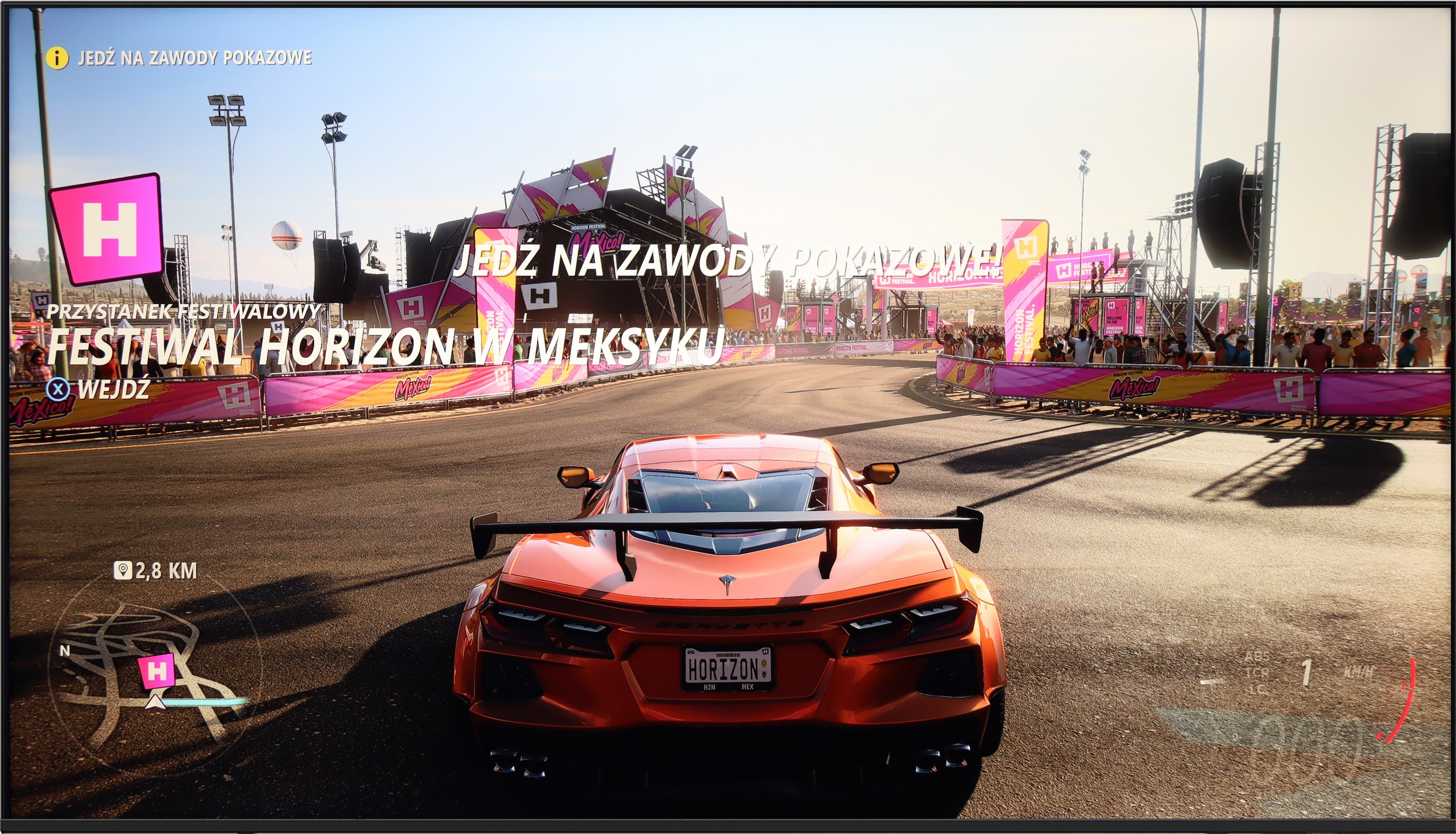
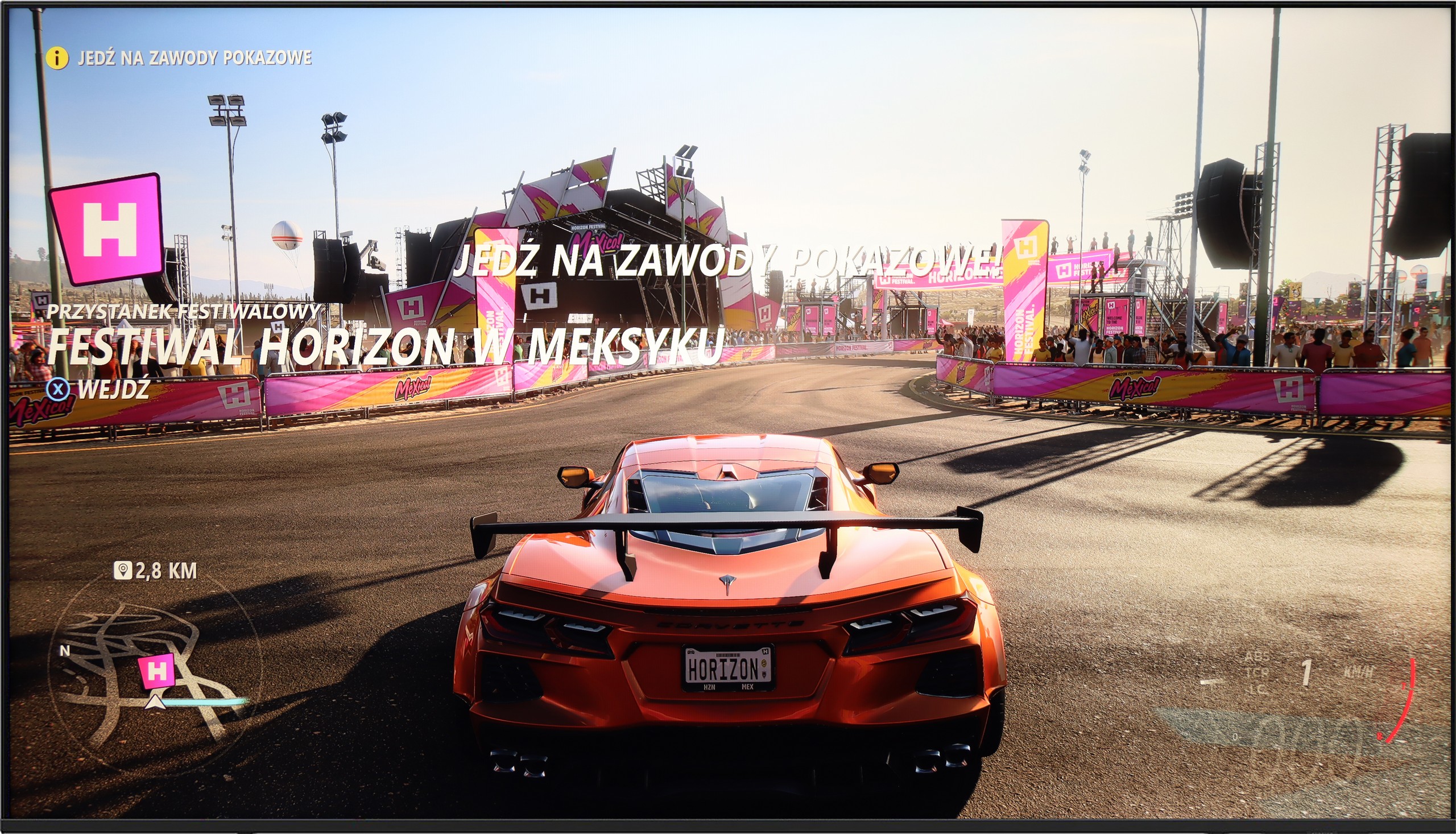

SAMSUNG U8000F - Input lag
10/10
The Samsung U8092F performed phenomenally in our input lag tests. Regardless of the resolution, the results were very low, which is truly impressive for this price segment. One can confidently say that gaming on this television will not cause irritation due to large delays between what we do on the pad and what we see on the screen. For most gamers, even the more demanding ones, this result should be more than satisfactory.
| SDR | HDR | Dolby Vision |
|---|---|---|
| 1080p60: 11 ms | 2160p60: 11 ms | |
| 2160p60: 11 ms |

SAMSUNG U8000F - Compatibility with PC
6/10
Chroma 444 (max. resolution and refresh rate): Yes
Font clarity: Very Good
Readability of dark text and shapes: Very Good
Input lag in PC mode (4K, max. refresh rate): 11ms
Matrix subpixel arrangement: BGR
Max refresh rate: 60Hz
G-Sync: No
Working on a computer using this television is a true pleasure. The Samsung U8092F supports chroma 4:4:4, and despite being a VA panel, the text readability is very, very good. The television is also suitable for occasional gaming on PC, mainly due to its low input lag. However, it should be noted that the G-Sync feature does not work on this model, which is strange as VRR operated without problems when it came to consoles.
SAMSUNG U8000F - Viewing angles
3.7/10
Brightness drop at an angle of 45 degrees: 67%
SAMSUNG U8000F - Daytime performance
3.8/10
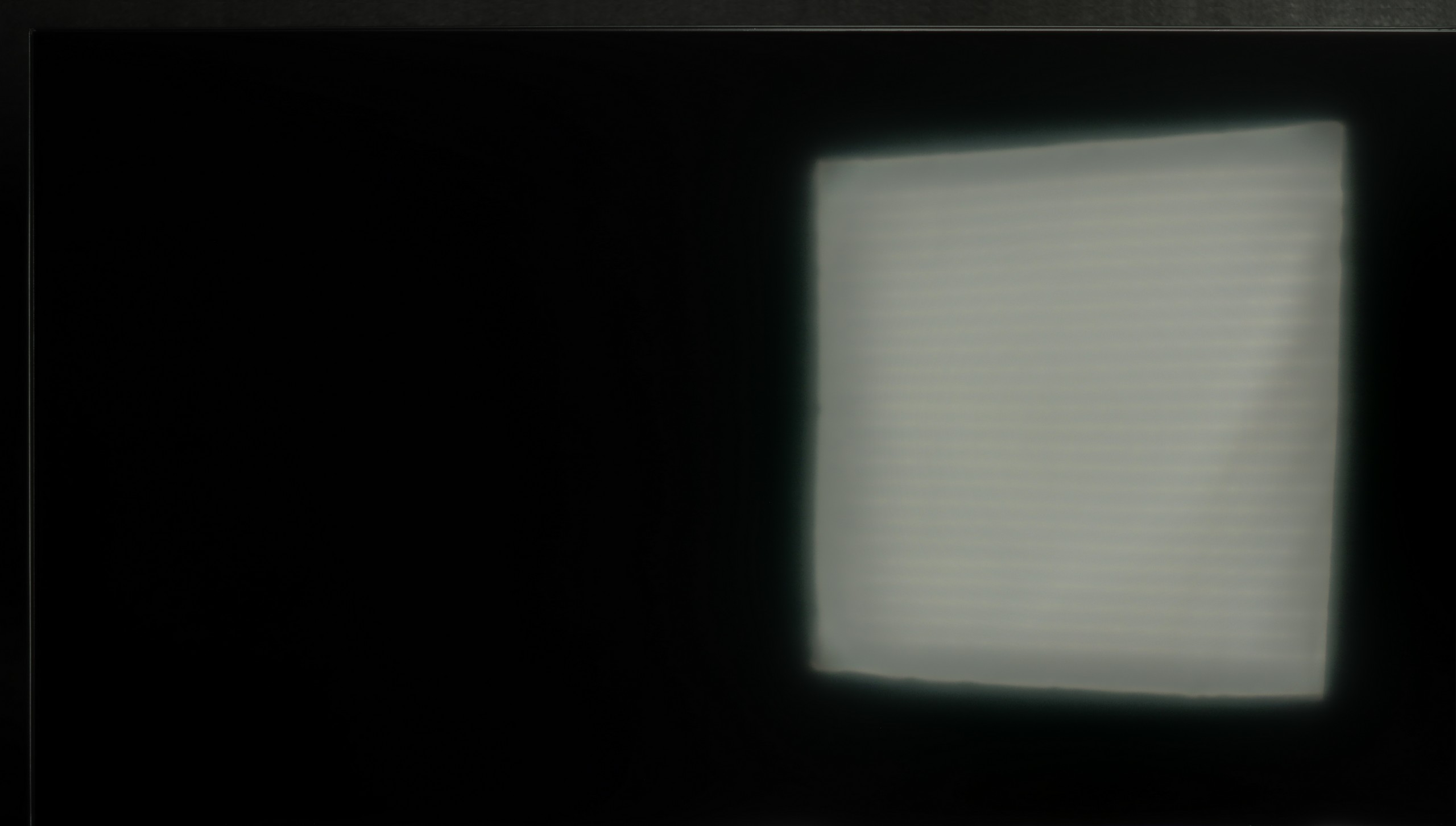
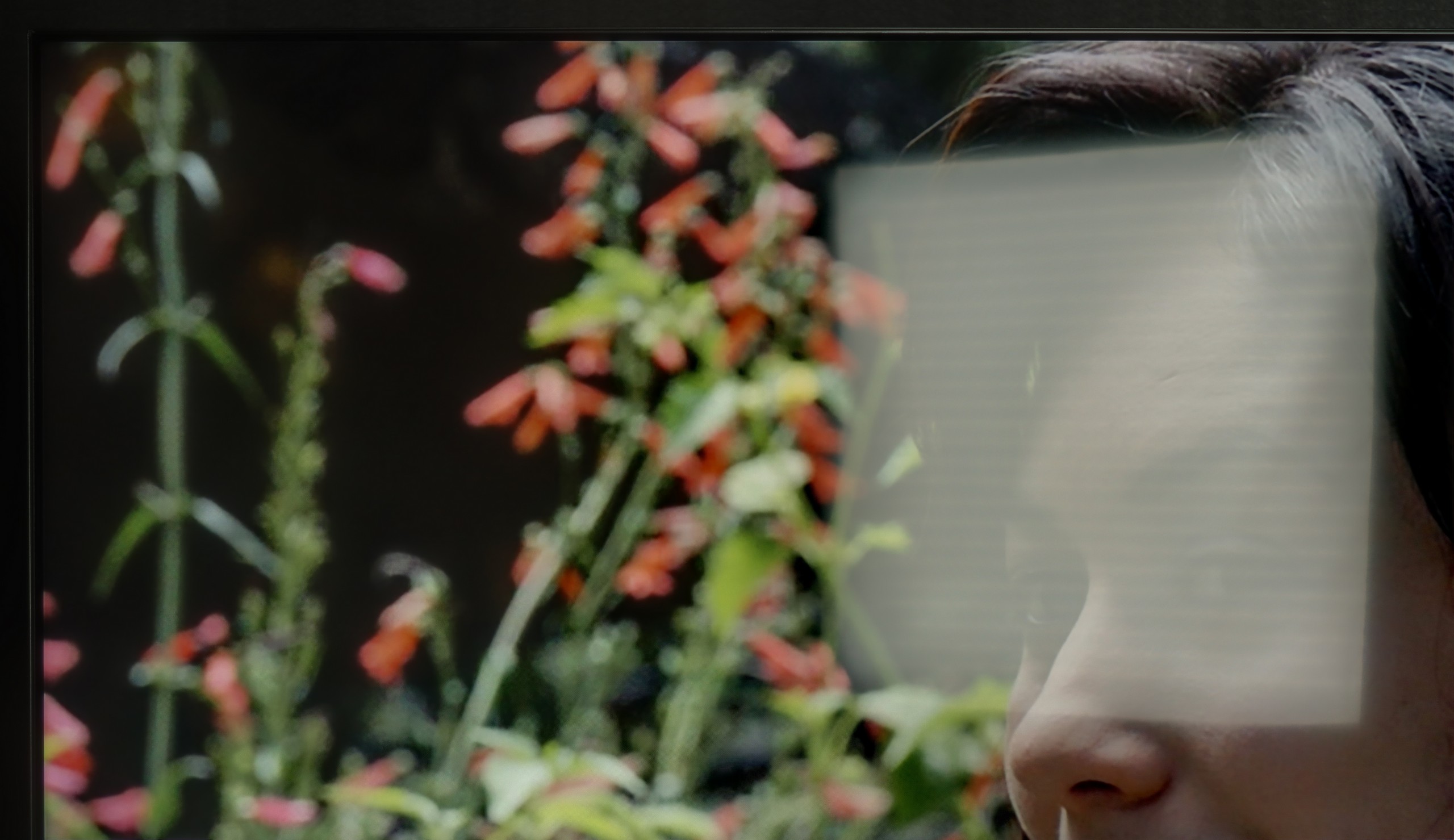
Panel finish: Satin
Reflection suppression: Decent
Black levels during daytime: Very Good
Thanks to the satin finish of the Samsung U8092F matrix, it handles glare quite well. The screen does not act like a mirror, and the colours – given the capabilities of this class of device – remain relatively saturated, even in slightly brighter conditions. Unfortunately, the coating itself won't work wonders. The television is simply too dark to effectively penetrate very difficult lighting conditions. If we place it facing a light source (e.g. a large window or a strong lamp) – unfortunately, one must consider that not everything will be clearly visible on it.
Panel brightness
Samsung U8000F (VA): 204 cd/m2
SAMSUNG U8000F - TV features
5.3/10
System: Tizen
System performance: Decent
- HDMI inputs: 3 x HDMI 2.0, 0 x HDMI 2.1
- Outputs: eARC (HDMI), ARC (HDMI)
- Network Interfaces: Wi-Fi 2.4GHz, Wi-Fi 5GHz, Ethernet (LAN) 100Mbps
- TV reception: DVB-T, DVB-T2, DVB-S, DVB-S2, DVB-C
Classic features:
Recording to USB (terrestrial TV): No
Recording programming: No
Picture in Picture (PiP): No
RF remote control (no need to aim): Infrared
Backlit remote control: No
Teletext: Yes
Audio only mode: Yes
Bluetooth headphones support: Yes
Simultaneous Bluetooth headphones & TV audio: Yes
Smart features:
AirPlay: Yes
Screen mirroring (Windows Miracast): Yes
Voice search: No
Voice search in native language: No
Ability to connect a keyboard and mouse: Yes




Samsung U8092F – like all this year's models from this brand – runs on the Tizen operating system. The system itself is really well developed: we have access to many applications (though not all), a well-developed smart home integration, and various add-ons, including exclusive Samsung applications. Features such as AirPlay and Chromecast are also available, allowing us to easily connect our phone to the television and share multimedia.
Unfortunately, since this is Samsung's cheapest series in 2025, the manufacturer did not choose to include a solar remote control. In the box, we find a classic infrared remote control that visually resembles a newer version, but unfortunately lacks voice functions. As for typical "television" add-ons – there is no recording feature or PiP (picture-in-picture) mode. On the positive side, the HDMI eARC works well, allowing easy control of devices like a decoder or soundbar with the bundled remote – and it indeed works seamlessly.
Sound connection options
HDMI audio:
Other audio outputs:
Wireless audio:
Bluetooth: Yes
Supported audio formats (external HDMI eARC audio):
Dolby Digital Plus 7.1: Yes
Dolby True HD 7.1: No
Dolby Atmos in Dolby Digital Plus (JOC): Yes
Dolby Atmos in Dolby True HD: No
DTS:X in DTS-HD MA: No
DTS-HD Master Audio: No
Senior accessibility
Numeric keyboard on TV: Yes
Font size adjustment: Yes
Audio description: Yes
SAMSUNG U8000F - Apps
8.7/10























SAMSUNG U8000F - Playing files from USB
9.3/10

| Maximum photo resolution: | Supported photo formats: |
|---|---|
Samsung U8092F handles the playback of files quite seamlessly – the television supports most popular audio and video formats. Of course, it does not support Dolby Vision, but this is simply not found in any Samsung model.
Certain reservations can be made regarding the support for external text files – those that the user would like to add as subtitles to a film. During our tests, the television only played TXT files, while other extensions such as SRT or SUB unfortunately did not work. This may not be a problem for everyone, but it is worth knowing. Perhaps this is an issue to be improved in the future through a television operating system update.
SAMSUNG U8000F - Sound
5.7/10
81dB
Maximum volume
Supported codecs (TV speakers)
Dolby Digital Plus 7.1
Dolby True HD 7.1
Dolby Atmos in Dolby Digital Plus (JOC)
Dolby Atmos in Dolby True HD
DTS:X in DTS-HD MA
DTS-HD Master Audio
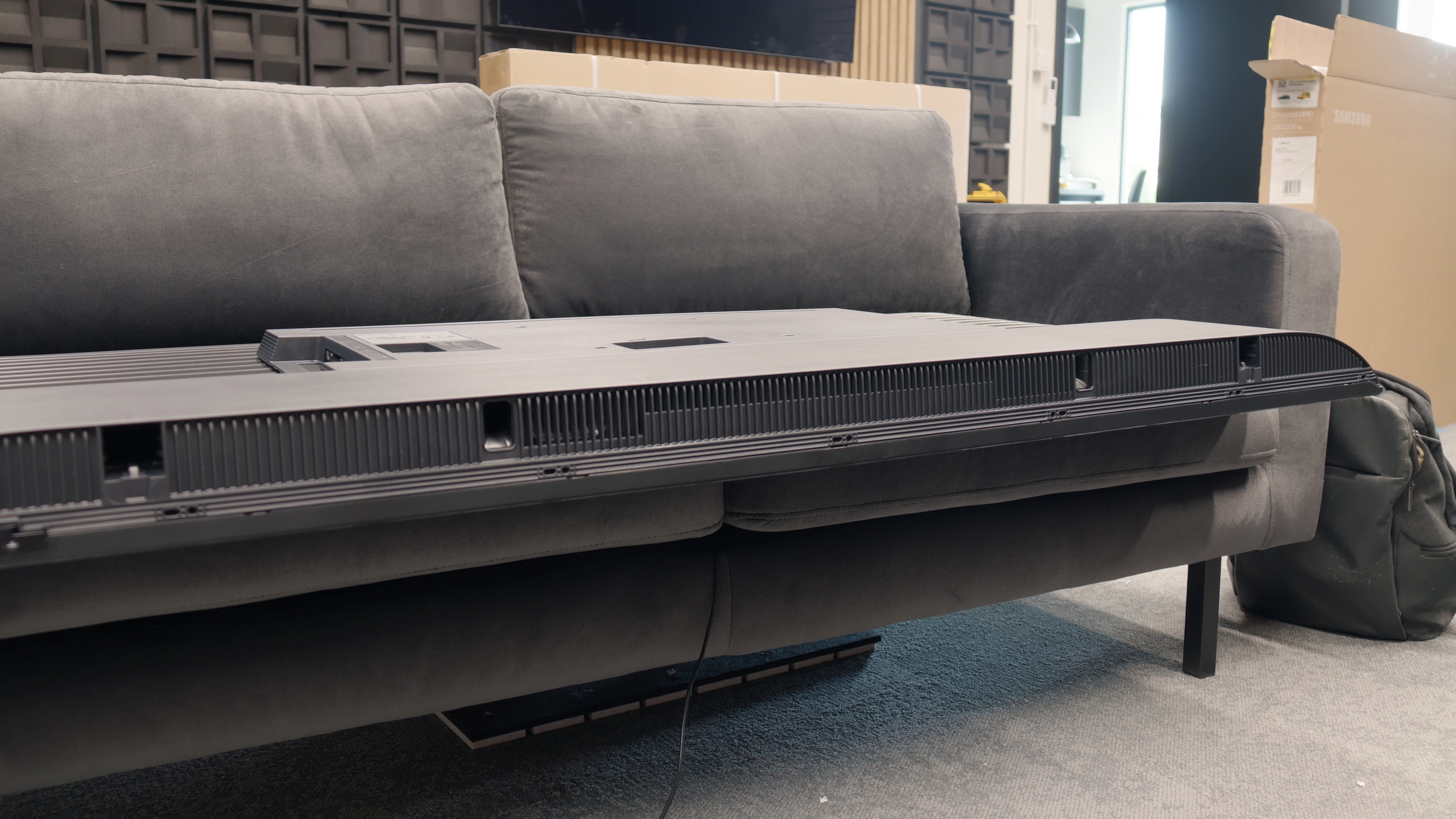
U8092F does not pretend to have home cinema on board. We receive a standard set of 2 x 10 W, which sounds decent, but without much excitement, though with a slight bass. For everyday viewing, this audio setup is entirely sufficient. We were positively surprised that it managed to play a film with the built-in Dolby Atmos (JOC) codec – although of course, we are not talking about true surround sound here.
Sound Quality Test:
Acoustic Measurements
81dBC (Max)
75dBC
SAMSUNG U8000F - Panel details
Software version during testing: 1064
Panel uniformity and thermal imaging:
Backlight Type: White LED

Founder and originator of the "ChooseTV" portal

Journalist, reviewer, and columnist for the "ChooseTV" portal
See articles related to Samsung U8000F (VA):
Shopping Reviews
The best Samsung televisions 2024 / 2025! Which Samsung tele... 4/30/2025
4/3/2025
2/22/2026
2/3/2026
Our YouTube channel
Intelligent calibration of Samsung TV in SmartThings 6/23/2025

